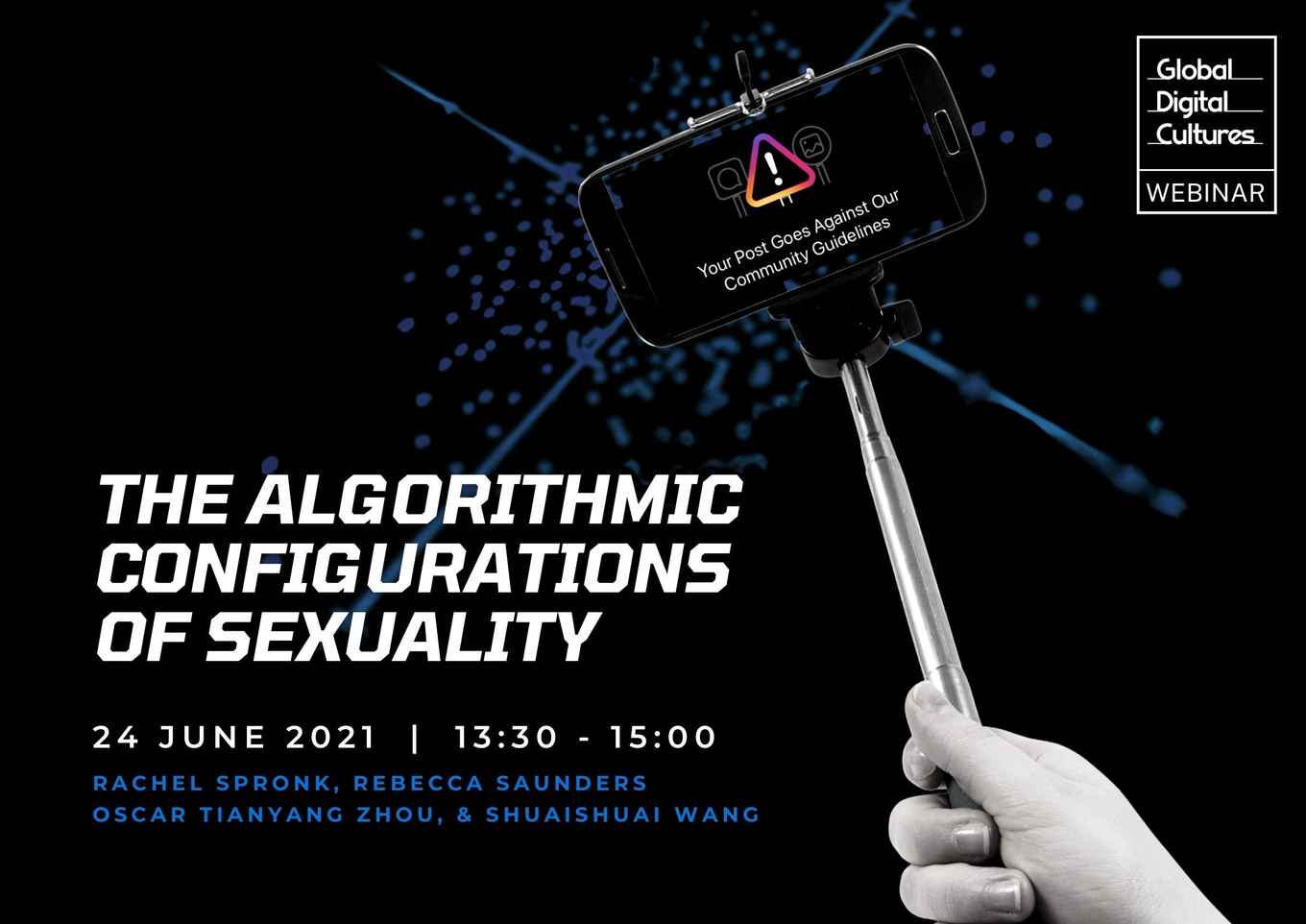The Algorithmic Configurations of Sexuality
24 June 2021

Chair:
Panelists:
Rebecca Saunders is a Senior Lecturer in Digital Media and Communication at The University of Huddersfield, UK. Her research falls within the disciplines of porn studies, cultural studies, and feminist and postcolonial data studies and often has a particular focus on labour. Her current projects include exploring users’ experiences of sex tracking apps; public engagement about how experiences of work and time have been affected by the Covid-19 pandemic; and speaking and writing on digital monsters. Rebecca’s first monograph came out last year and is called Bodies of Work: the Labour of Sex in the Digital Age.
Oscar Tianyang Zhou is a Lecturer in Media at the School of Humanities, University of Hertfordshire, UK. His research uses the lenses of cultural studies, feminist and queer theory to investigate how LGBTQ communities engage with media technologies, texts, and practices in their everyday life. Dr. Zhou has published in journals such as China Media Research and OrizzonteCina as well as in edited volumes such as Queer Sites in Global Contexts (Routledge, 2021), Queer Intercultural Communication (Rowman & Littlefield, 2020), Exploring Erotic Encounters (Brill, 2019), and Chinese Social Media (Routledge, 2018). He is currently chairing the UK-China Media and Cultural Studies Association (UCMeCSA).
Shuaishuai Wang is a Lecturer in New Media and Digital Culture at the University of Amsterdam. His research is concerned with marginalized experiences and underrepresented groups in the algorithmic systems of digital platforms. Together with Rachel Spronk, he was awarded a seed grant from Global Digital Culture (Research Priority Area of the University of Amsterdam) for the project “The Algorithmic Configurations of Sexuality on Social Media.” Shuaishuai's work has been published in journals such as Information, Communication & Society, Media, Culture & Society, Feminist Media Studies, and Sexualities.